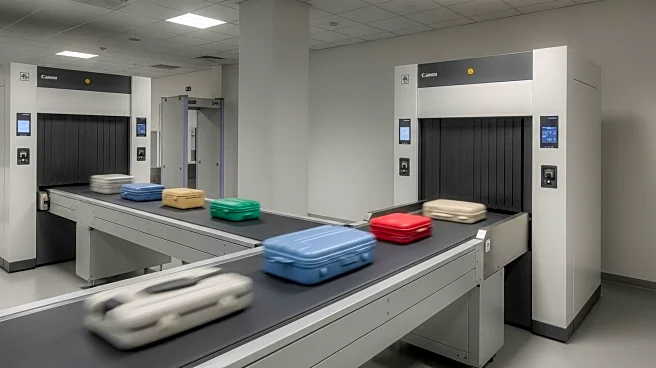What is the story about?
What's Happening?
U.S. Customs and Border Protection (CBP) and the Transportation Security Administration (TSA) are trialing a new baggage screening process that allows international passengers to bypass re-checking their baggage before connecting to another flight. This initiative, part of the International Remote Baggage Screening (IRBS) pilot program, is currently being tested on United Airlines flights from Sydney Airport to San Francisco International Airport and select American Airlines flights. The process involves CBP personnel remotely reviewing x-ray images of checked baggage captured at the foreign airport before the aircraft lands, aiming to expedite passenger processing and enhance security.
Why It's Important?
The trial of this new baggage screening process is significant as it represents a shift towards more efficient airport operations, potentially reducing wait times and improving passenger experience. By allowing passengers to bypass the traditional baggage re-check process, the initiative could streamline airport procedures and enhance security measures. This development may benefit airlines and passengers by reducing connection times and increasing operational efficiency, potentially setting a precedent for future international travel protocols.
What's Next?
As the trial progresses, CBP and TSA plan to expand the program to additional international routes, potentially transforming baggage handling procedures at U.S. airports. The success of this initiative could lead to broader implementation, requiring collaboration between airlines, airport authorities, and security agencies. Stakeholders will be monitoring the program's impact on security, efficiency, and passenger satisfaction, which could influence future policy decisions.
Beyond the Headlines
The implementation of remote baggage screening reflects ongoing efforts to leverage technology in enhancing airport security and operations. This approach may raise questions about data privacy and the effectiveness of remote screening in identifying security threats. The initiative's success could drive further innovation in airport security protocols, potentially influencing global standards for international travel.















